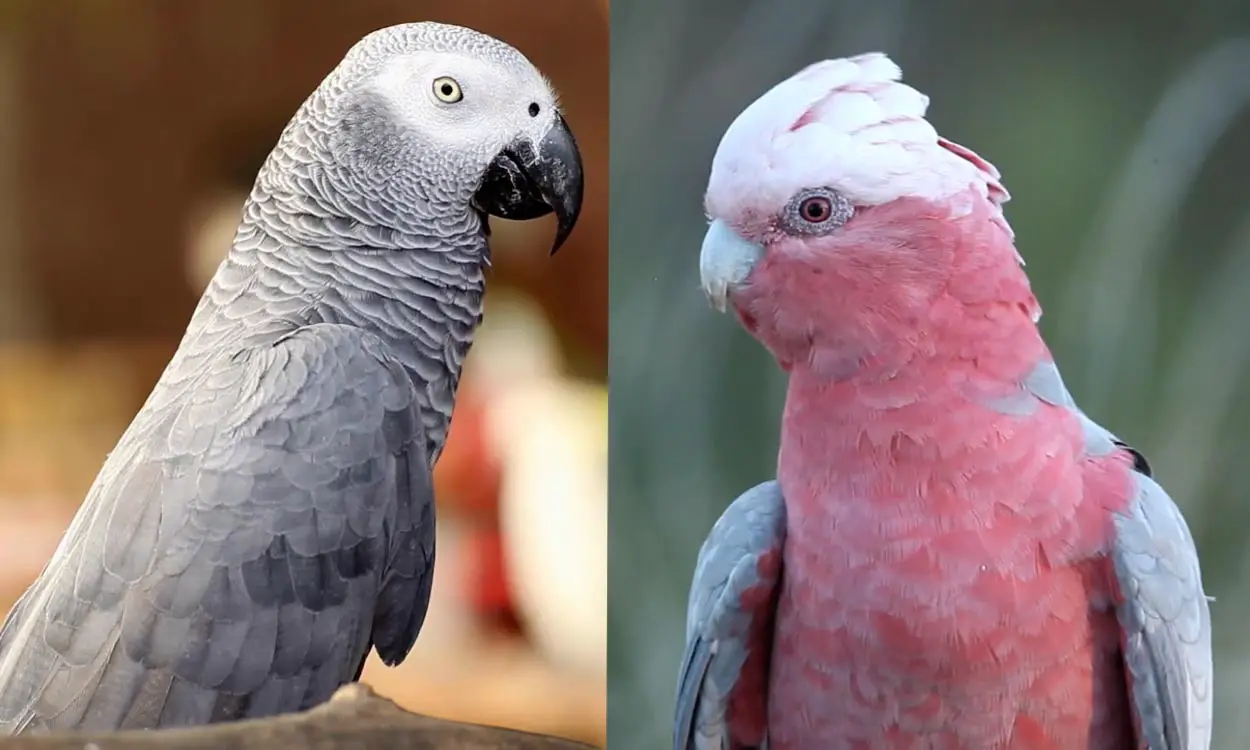Cockatoo vs African Grey: Which is the Best Bird for Your Home?
Cockatoos are the social birds you want to have around to keep your spirits up. However, the classy aesthetic of African Greys is unmatched. It’s not that Cockatoos don’t look good or that African Greys don’t interact with their owners.
But, from my experience, they excel in different things, and this is what makes them ideal for a particular owner. If you are only looking for an interactive bird, then a Cockatoo is your best choice.
However, for those who want a bird just to enhance the aesthetic of the house, you can get a better deal with African Greys.
Let me tell you, it’s not that simple. They have some subtle nuances in terms of their behavior, ability, and habits. It’s really crucial to know all about it before making a decision. So, have a read of the following points, and you should be equipped with everything you need to know.
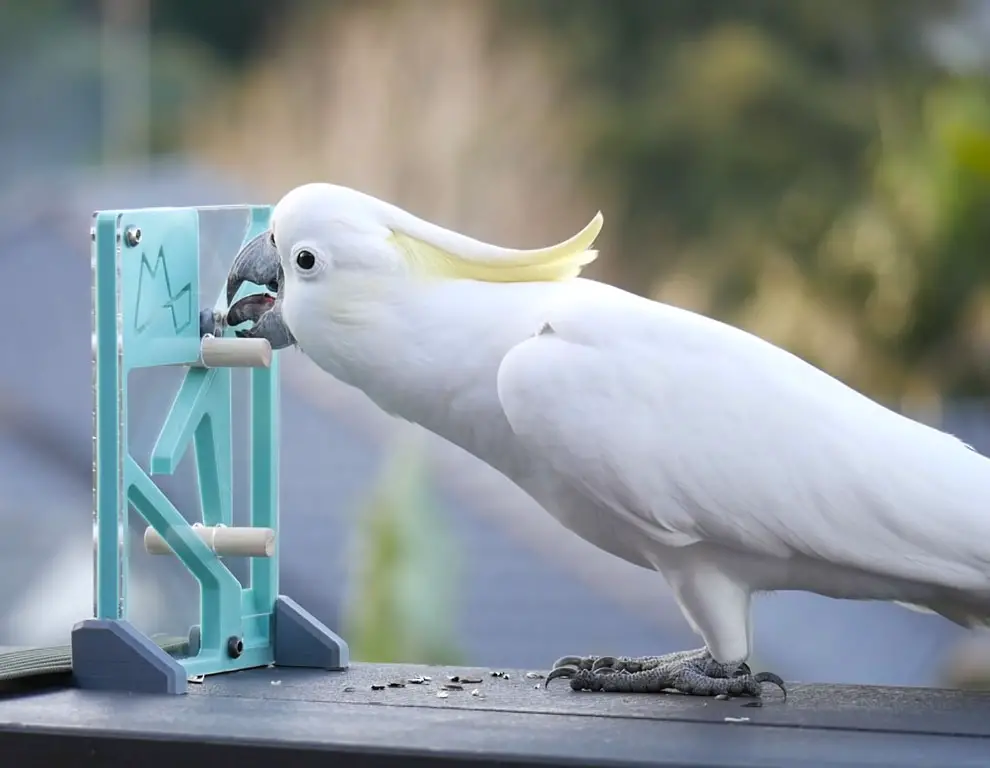
What are the Differences between the Two Birds?
I won’t say they are vastly different. Still, they do have some nuances and contrasts that make them ideal for a particular type of owner. Let me show you what I have realized from my experience with them.
What Are They Like in General?
Cockatoos are usually of an extroverted nature. Mine was really social and outgoing from the very beginning. It’s a cuddly bird and craves affection almost all the time. I can’t complain about it because it’s too cute when they tiptoe to me and seek pats and rubs.
African Greys are a bit more reserved. Although they don’t stay away from everyone. For example, my African Grey plays with me and interacts with me quite often.
But, if I am with a stranger or if someone new tries to approach it, the bird feels vulnerable. They are actually cautious around strangers but bond intimately with one person.
Related post-Eclectus Parrot vs African Grey: Which Bird Should You Get?
So, if you want to include a bird in your family, then get the social Cockatoo. But, if you want a bird only for yourself, then African Grey should be the way to go.
This is also true if you are a couple. I have noticed mine, and many other African Greys, bonding with up to two people, given that the bird lives with both of them.
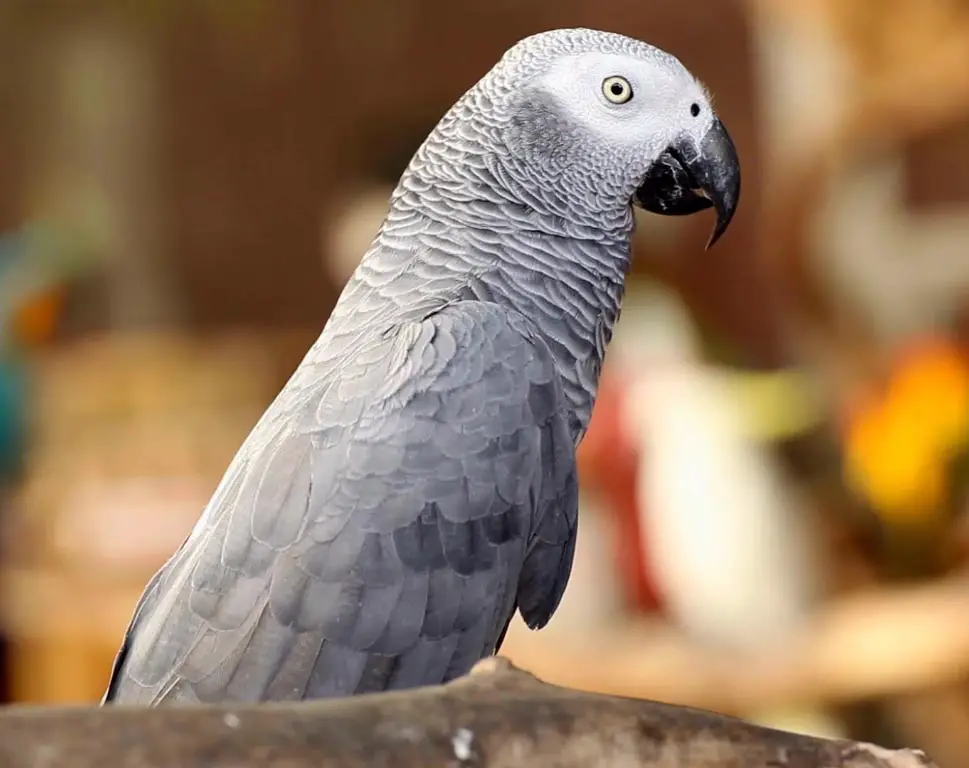
Do They Bite?
Unfortunately, both of these birds are notorious for their biting, and they bite with the same level of force. Although their bite won’t pull out a chunk of your flesh, it can cause deep cuts if the bird gets too mad.
My African Grey was more prone to biting because it was sensitive in nature and got easily intimidated. Again, its introverted nature was at play here.
However, after it got to know me well, and after, though rarely, interacting with people, it got rid of its habit. It doesn’t bite anymore.
My Cockatoo was always a safe bird. It doesn’t usually bite or nip. However, during hormonal changes, both of these birds lose it and are more likely to bite everything that comes their way. I avoid them during their mood swings.
Both of them are also likely to bite if they feel scared or threatened.
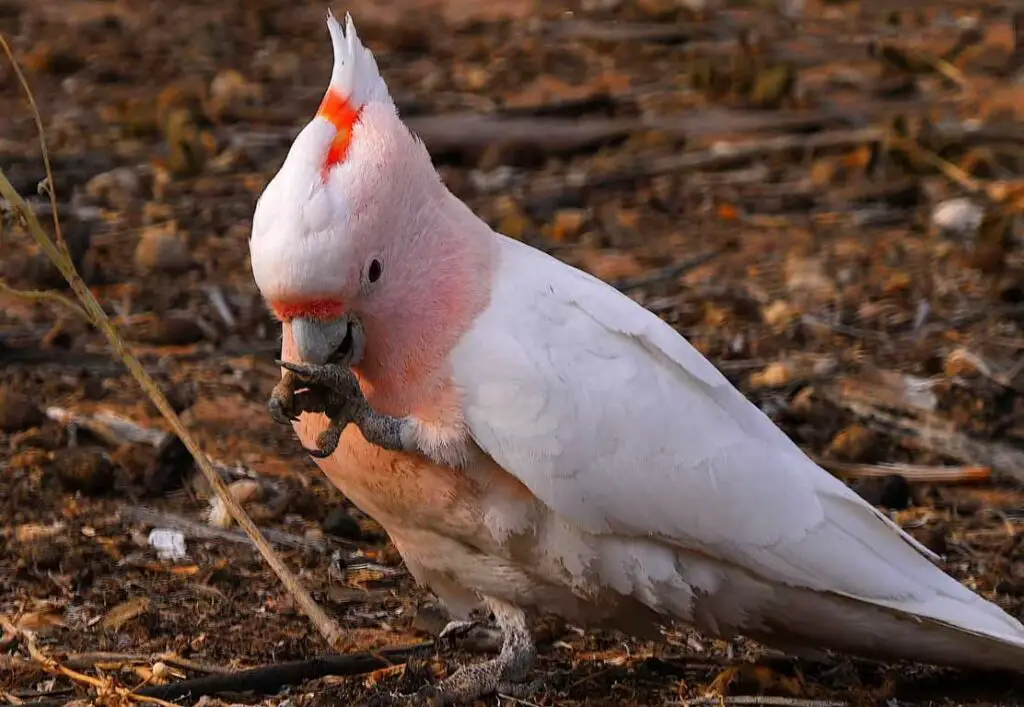
It’s important to understand that the case can be the opposite as well. Sometimes, it is the Cockatoo who is more likely to bite. But such cases are rare.
This is why, if biting is a big concern for you, then go for a Cockatoo. However, if this doesn’t matter and you can afford time to teach it not to bite, then either is good.
Can They Talk?
There’s a fine line here. Both Cockatoos and African Grey can mimic sounds but not with the same proficiency.
Cockatoos can mimic sounds and words. But that’s it; they only mimic. I love my Cockatoo, but I am not impressed by its talking ability. My African Grey, on the other hand, despite not being that interactive, is an excellent talker.
Its exceptional talking ability always impresses me. It didn’t even take me long to teach it how to talk, thanks to their intelligence.
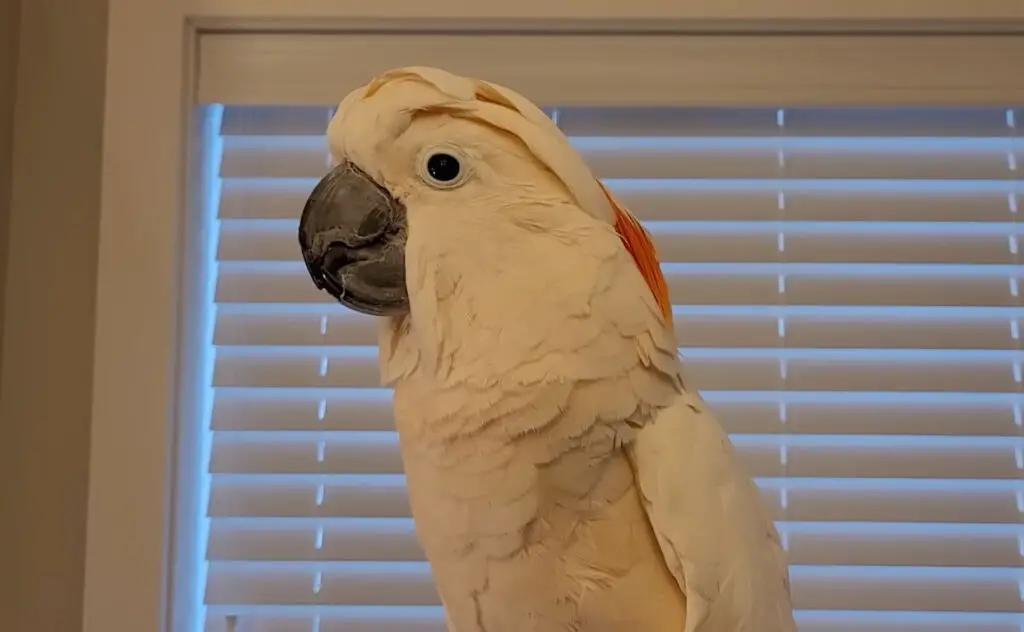
Thus, if you want a bird to talk to, get an African Grey. But I must tell you, mine only talks with me. Whether or not your bird will interact with others in the same way depends on the environment you create.
Do They Pluck Feathers?
Both of these birds have feather-plucking issues, and there’s something that can be done.
Some Cockatoos, not all, are prone to plucking feathers when they are bored or stressed. Due to being extroverted and social, Cockatoos want to be the center of attention for a significant part of the day.
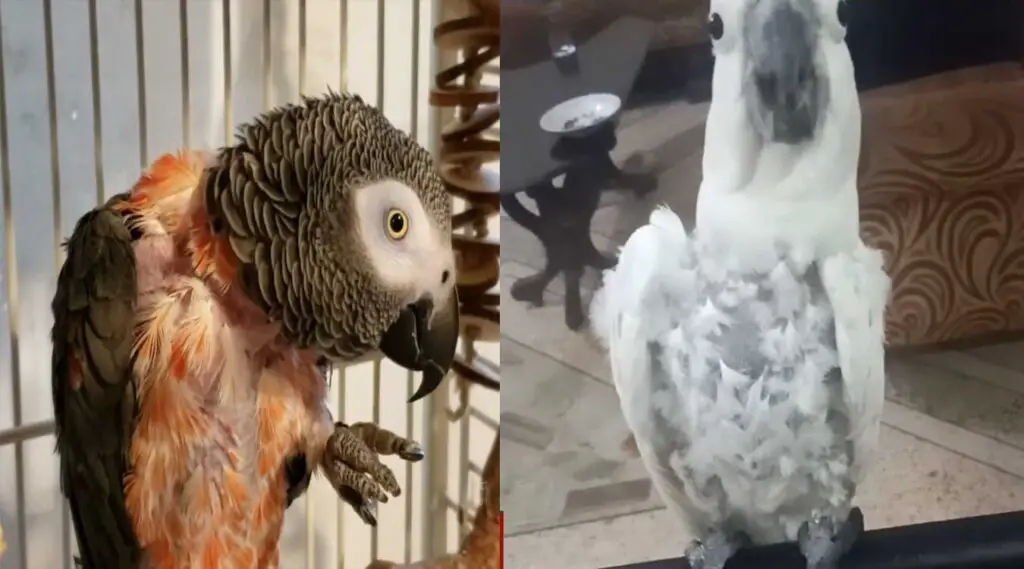
If I am out for long or if I am deeply engaged in my work at home, it used to get mad. Although it doesn’t do this anymore, the case was pretty bad before. What changed? I interact with it on a regular basis. That’s it.
My African Grey, too, had developed a feather-plucking issue, but that was never much of a problem. Mine plucked its feathers because it had some skin issues.
In general, they, too, like Cockatoos, can pluck feathers when they are stressed or lack mental stimulation. But their feather-plucking habit is less intense than a Cockatoo.
How Are They Around Children?
Both African Grey and Cockatoo are larger parrots. They are literally huge, and they have sharp claws. They are not aggressive. At least, I didn’t see them get aggressive apart from the little tantrums they throw every now and then for very valid reasons.
So, for their size and aggressive behavior, I am against having these birds around children. You never know when these birds will feel threatened and bite or scratch the kids.
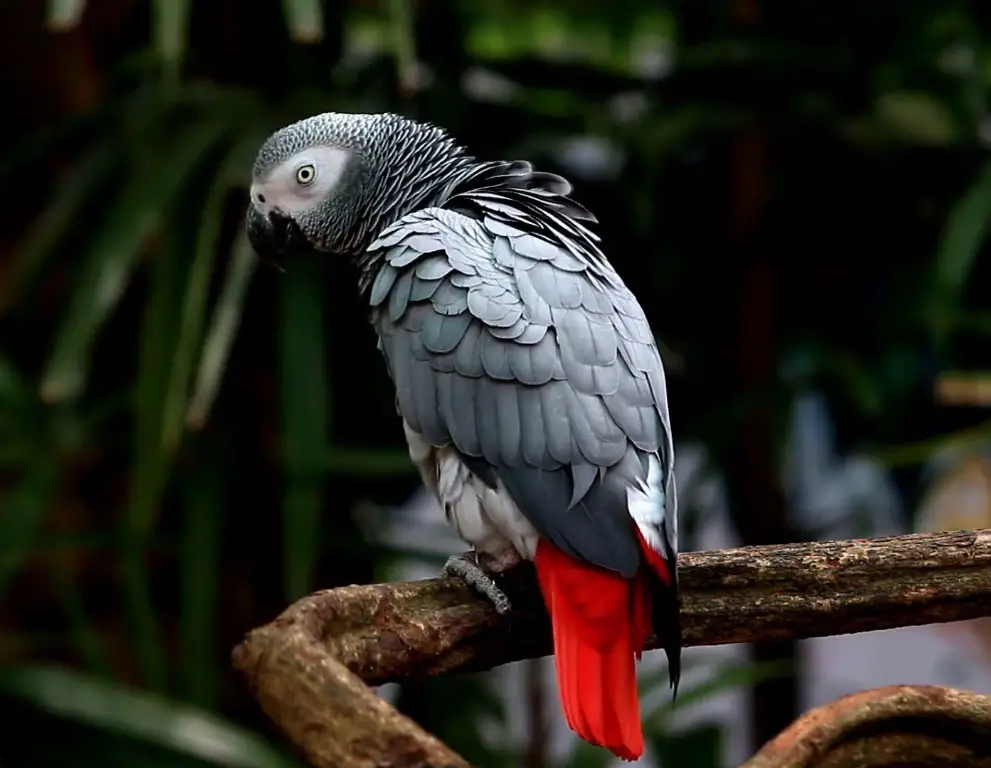
But, if you really want one of these huge birds in your house full of kids, or if any kid comes over to your house, make sure to maintain close supervision. It doesn’t matter which bird you have if the concern is the safety of the children.
How Loud Are They?
Cockatoos are really loud and produce piercing screams. Especially when they are thrilled or excited, they would scream at the top of their tiny lungs. I have measured that their voice can reach up to 130dB, and this level of sound is not safe.
However, it’s not that big of a deal unless the Cockatoo comes up to your ear (which it won’t) and voices their loudest chirp.
Related post– Amazon Parrot Vs African Grey Parrot | 9 Differences
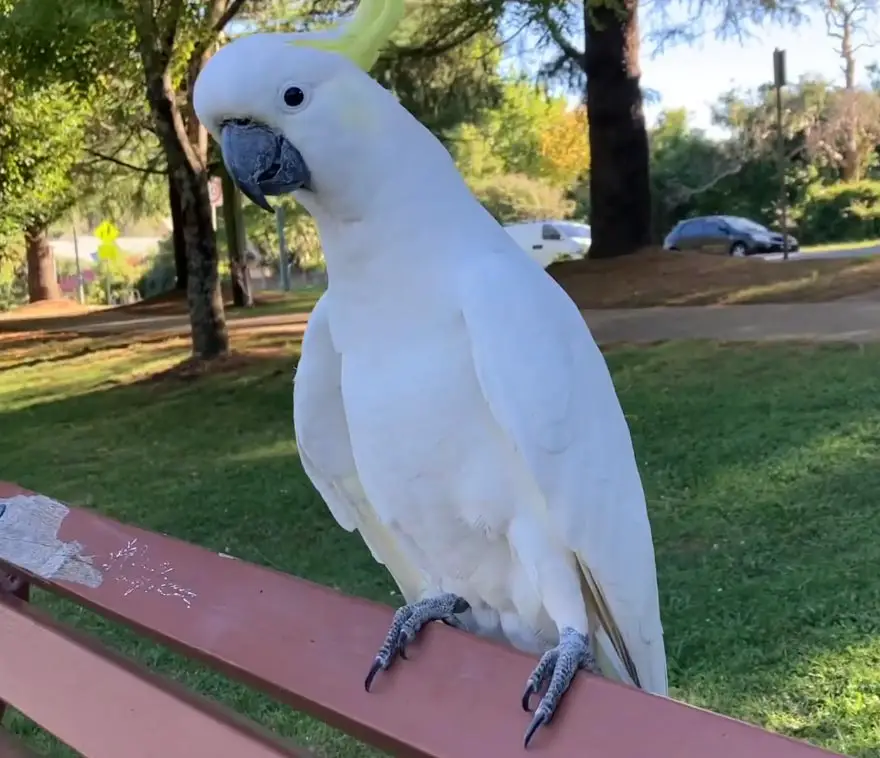
The same goes for African Greys. But I have noticed that they are less annoying. Being introverted birds, they don’t usually express themselves with loud screams that often.
Apart from excitement, they are known to scream out of boredom as well. But still, it can get pretty annoying if you are sensitive to sharp noises.
Only for this reason, Cockatoos and African Greys are the right pets for apartments. If you are sharing a living space with others, don’t go for either.
What Do They Eat?
Every bird has its own dietary habits, and you can actually build them up as long as they are not fully adaptive to their existing diet. In general, both are good eaters. However, I have noticed that African Greys have fewer dietary requirements than my Cockatoo.
I feed my Cockatoo an assortment of seeds, nuts, berries, flowers, and certain baby vegetables. Similarly, I offer seeds, nuts, and fruits to my African Grey.
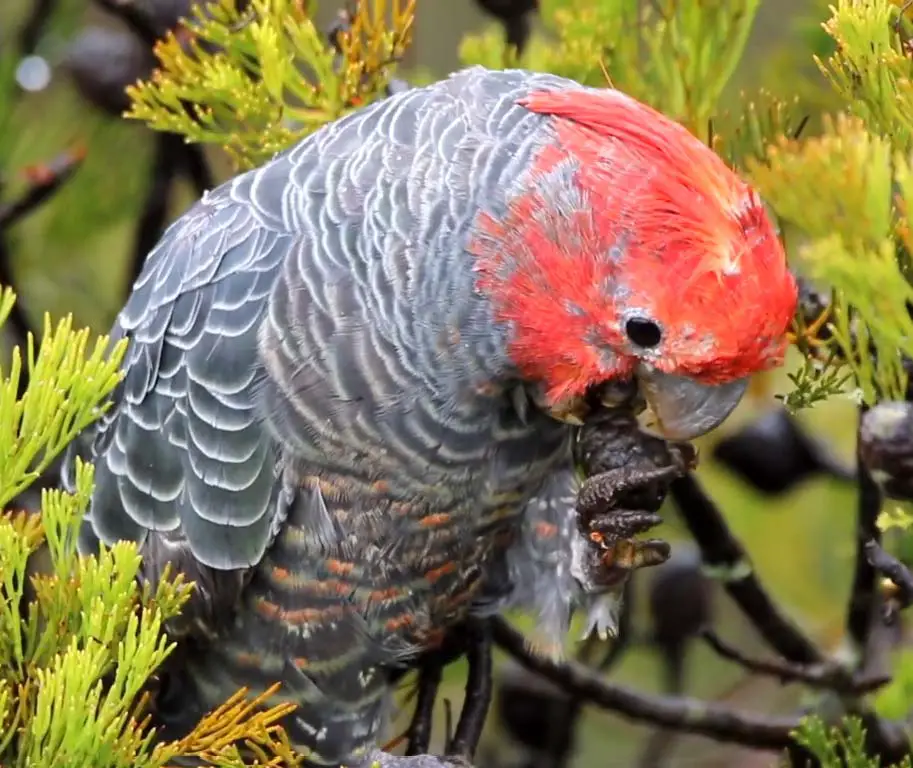
The difference is I can give my African Grey the same food day after day, and it won’t complain. But my Cockatoo demands diversity in its diet.
So, if you don’t want any hassle with food, then get an African Grey. But if you want to see a jolly bird flying around your house, then having a Cockatoo is really worth the hassle.
Related post-Timneh African Grey vs Congo African Grey: Which Bird To Get?
How Much Do They Cost?
These are not cheap birds, but they are not that expensive either. Given how amazing they appear and how much joy they bring to my life, the price I pay is on point.
In a year, I have to spend around a thousand bucks on my Cockatoo. On the other hand, my African Grey costs me more than $700 a year. These costs include food, toys, vet care, grooming, and some extra costs.
Though there’s not much of a difference in terms of the cost, you can go for an African Grey if you are on a budget. Thanks to their superb health and flexible dietary requirements, you can easily cut back on costs with them.
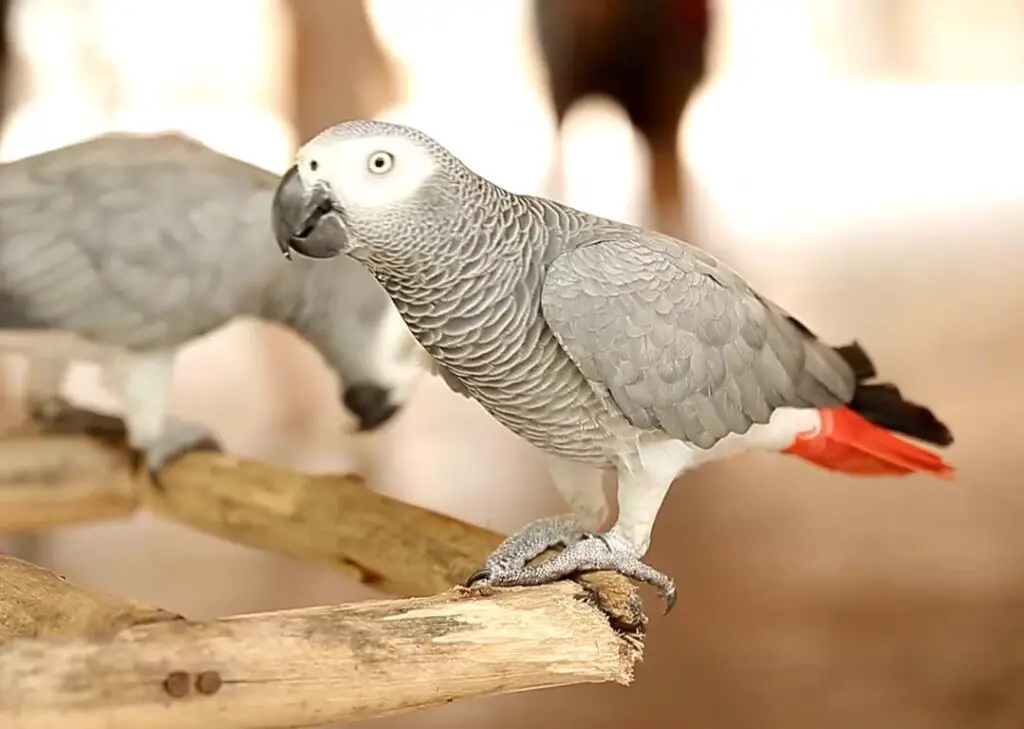
How Do They Look?
African Grey and Cockatoos have very apparent differences when it comes to their looks. The most common Cockatoo, the Sulphur-crested Cockatoo (the one I have), is a large yellow parrot with a grey back and bill.
It has a distinctive yellow crest and a slight yellow wash under its wings. The yellow tint here is known as Sulphur yellow, hence the name.
On the contrary, African Greys are mottled grey-colored birds. They, too, have a large black bill, but uniquely enough, they have a white mask enclosing a yellow eye. What allures me most is their striking red vent and tail.
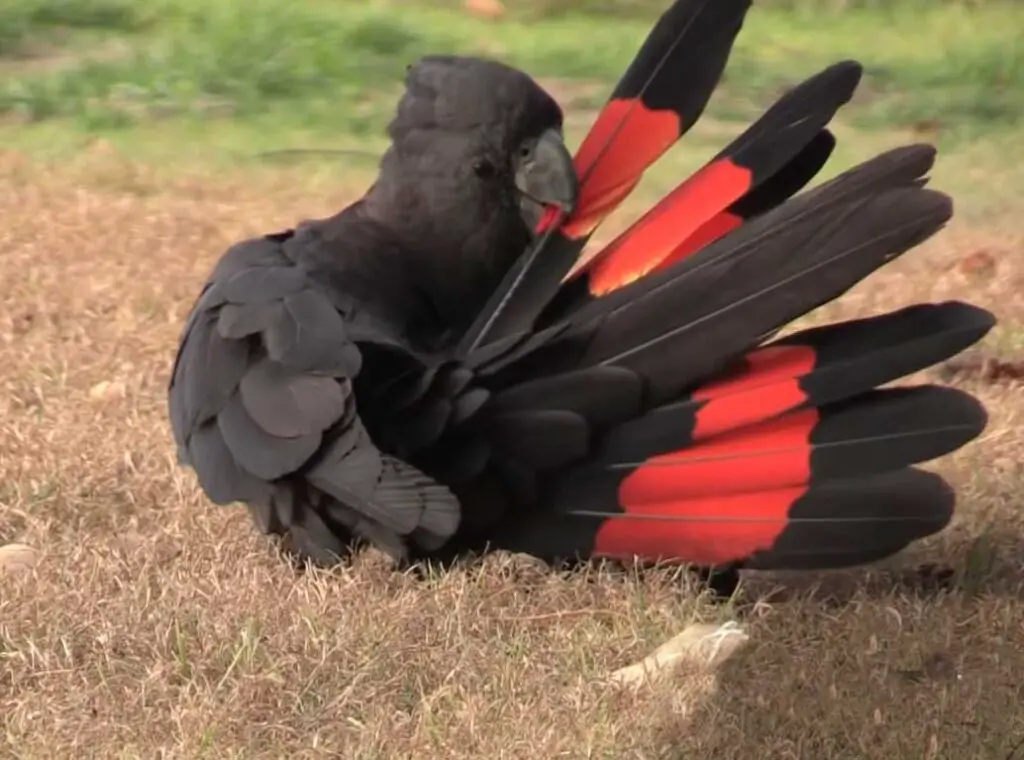
This color combination makes African Grey appear more aesthetic and classier in my eyes. But this is definitely a matter of personal preference
As for the size, there’s not much of a difference. From a distance, both seem the same in length. However, my close measurement reveals that my Cockatoo is slightly, about an inch, larger than my African Grey.
Cockatoo or African Grey: Which One You Should Choose at the End?
As you can see, these two are diverse birds. Both are large, majestic avians, but when it comes to the specific details of personality and behavior, they are very different, contrasting even in some cases. But this contrast helps.
If you have read this article, you now know that a Cockatoo is a good choice for houses filled with people and for those who need an interactive bird to play with.
On the contrary, if you live alone or with your partner, then an African Grey will keep you company but won’t bother you with its dietary habits or need for attention. You can talk and interact with it whenever you want, however you want.
Ultimately, both are really good choices if you can adjust to their noise and screams. It’s definitely a pain in the neck at first, but trust me, if you offer proper care, it will go away.
